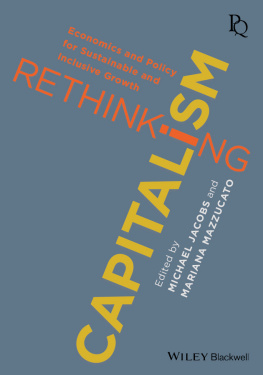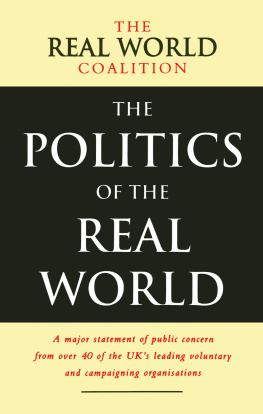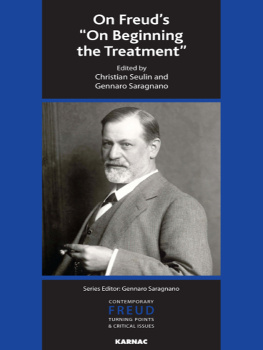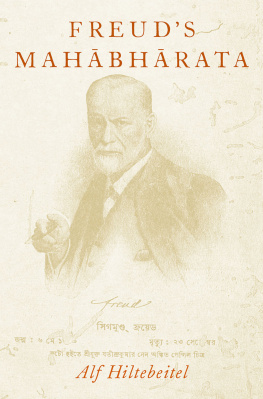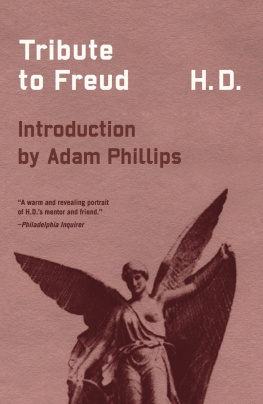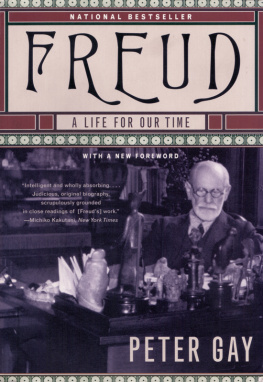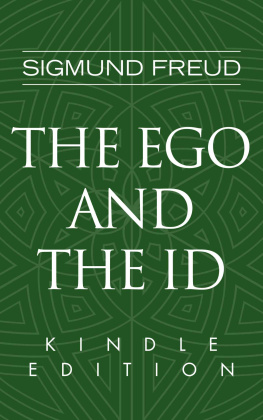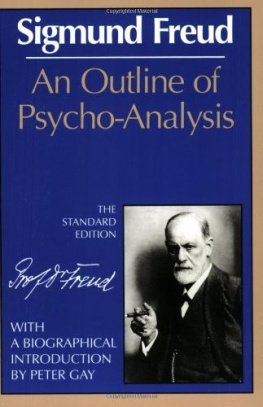Sigmund
Freud
Key figures in Counselling and Psychotherapy Series editor: Windy Dryden
The books in this series provide concise introductions to the life, work and influence of leading innovators whose theoretical and practical contributions have shaped the development of contemporary counselling and psychotherapy. The series includes the following titles:
Sigmund Freud, second edition
by Michael Jacobs
Carl Rogers, second edition
by Brian Thorne
Eric Berne
by Ian Stewart
Melanie Klein
by Julia Segal
Fritz Perls
by Petruska Clarkson and Jennifer Mackewn
Aaron T. Beck
by Marjorie Weishaar
Albert Ellis
by Joseph Yankura and Windy Dryden
D.W. Winnicott
by Michael Jacobs
George Kelly
by Fay Fransella
Joseph Wolpe
by Roger Poppen
J.L. Moreno
by A. Paul Hare and June Rabson Hare
Milton H. Erickson
by Jeffrey K. Zeig and W. Michael Munion
Carl Gustav Jung
by Ann Casement
Sigmund
Freud
Second Edition
Michael Jacobs

Michael Jacobs 2003
First edition published 1992. Reprinted 1993, 1995, 1997, 1998, 2000, 2002 This edition published 2003
Apart from any fair dealing for the purposes of research or private study, or criticism or review, as permitted under the Copyright, Designs and Patents Act, 1988, this publication may be reproduced, stored or transmitted in any form, or by any means, only with the prior permission in writing of the publishers, or in the case of reprographic reproduction, in accordance with the terms of licences issued by the Copyright Licensing Agency. Inquiries concerning reproduction outside those terms should be sent to the publishers.
 | SAGE Publications Ltd
6 Bonhill Street
London EC2A 4PU |
SAGE Publications Inc
2455 Teller Road
Thousand Oaks, California 91320 |
SAGE Publications India Pvt Ltd
B-42, Panchsheel Enclave
Post Box 4109
New Delhi 110 017 |
British Library Cataloguing in Publication data
A catalogue record for this book is available from the British Library
ISBN 0 7619 4109 6
ISBN 0 7619 4110 X (pbk)
Library of Congress Control Number: 2002110085
Typeset by C&M Digitals (P) Ltd, Chennai, India
Printed in Great Britain by TJ International Ltd, Padstow, Cornwall
Contents
Preface to the Second Edition
I am keen, as the reader will soon detect, that Freud should occupy the central place in this book, and that, as far as possible, his own writing should provide the material upon which his arguments stand or fall. Like many a reader who has opened one of Freuds books, I have found myself fascinated by his ideas, by the range of his thinking and by the liveliness of his style. Knowing that students to whom I have introduced Freuds own books have similarly been excited and often captivated by him, I have no wish to delay the reader from the main body of my text.
It is important to draw attention to three conventions, which I have found necessary to adopt, arising from the vast literary output by Freud and about Freud. I have drawn upon so many of his papers and books that it has proved impossible to reference in any way other than the Standard Editions classification of dates of Freuds publications. Even though I do not cite every work, any suffix system of my own would only have made for confusion. The suffix letters added to the dates of publication therefore refer to the bibliography in his Collected Works. As I was rewriting this edition the publication of the new translations of Freuds major works in Penguin Classics gave me the opportunity to refer to the volumes already in print, as well as drawing attention in the
I have had to make two further decisions about spelling. I have chosen to standardize the spelling of psychoanalysis and its derivatives, even if in some of the titles and texts cited the original author or editor preferred psycho-analysis. I have done this on the grounds that it is the more common of the two forms, and is used throughout the Penguin Freud Library and Penguin Classics (although not in the Standard Edition).
It has been more difficult to know what to do about the alternative spellings of phantasy and fantasy. There is a British psychoanalytic convention that has used phantasy, although more modern books prefer fantasy. The difference may be important: phantasy was originally used to distinguish internalized (private) imaginative constructions and ideas, wishes or fears; fantasy was used of externalized (public) inventions such as fairy stories, science fiction and so on. For example, Freuds death instinct might be called a fantasy, an invention (of sorts), whereas his belief in the constant resistance to his ideas might be called a phantasy. I have decided in this edition against adopting the convention, and have used fantasy except in quotations, where I have preserved the form used in the original.
I am grateful to the editor of this series, Windy Dryden, for initially providing me with the opportunity to take Freud as a subject, and the consequent necessity of some disciplined reading it is all too easy with such a figure as Freud to describe him, his theory or his practice from a less informed position, and from what others have written about him. To discover, as I have often done, that Freud had not quite put things the way I imagined he had, has been always refreshing, and at times it has been a revelation. I have tried to be careful to understand Freud before trying to pass on any of his ideas to the reader.
Since the first edition I have retired from the University of Leicester, and am fortunate to share both my leisure in Dorset and my reduced programme of work with my wife, Moira Walker, whose healthy criticism of Freuds more doubtful ideas, and openness to my explanations of what Freud might have meant enlivened the writing of the first edition. The first edition was especially for her, and my first grandchild, Laura. This second edition is likewise for Moira, with thanks for her continued love and support; but Joshua will, I am sure, as my second grandchild, want to be mentioned alongside his sister!
Michael Jacobs
Swanage, August 2002
Acknowledgement
Lines from In Memory of Sigmund Freud are from Collected Poems by W.H. Auden, edited by Edward Mendelson (London: Faber and Faber Ltd, 1976). Reprinted with permission of Faber and Faber Ltd (London), Random House Inc (New York) and Curtis Brown Ltd (New York).
1
The Life of Sigmund Freud
For every day they die among us, those who were doing us some good, who knew it was never enough but hoped to improve a little by living.
W.H. Auden: In Memory of Sigmund Freud
An Independent Existence?
Get it out, produce it, make something of it outside you, that is; give it an existence independently of you. Such was Freuds advice to Joan Riviere, one of his English translators, and at one time his analysand (Riviere, 1958: 146). He was referring to a psychoanalytic explanation which she had shared with him. In saying this, Riviere felt that he was referring to his own approach to thinking, to put it on paper or, again in his words, to get it out of your system.
Freud certainly got much out of his system, in more senses than one, since it can fairly be claimed, by supporter or critic alike, that much of what he discovered came from his attempts to understand himself. But both the volume of what he got out, as well as the very nature of that enterprise of which he hinted to Riviere, leads the present author to wish it was as straightforward as that to write about a man whose ideas are so bound up with his own and with our own existence. To give Freud an independent existence in the mind of the reader is certainly my aim; but the task presents a number of dilemmas which cast necessary doubts upon the independence of the enterprise.
Next page

